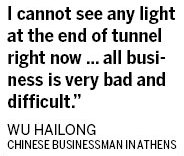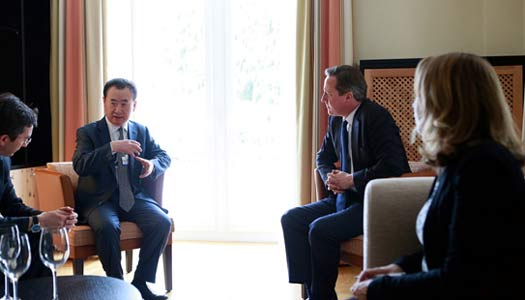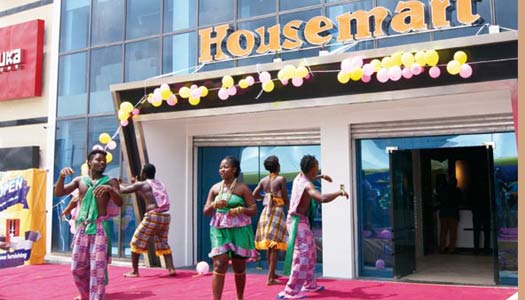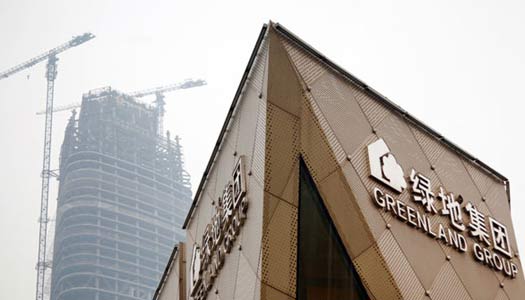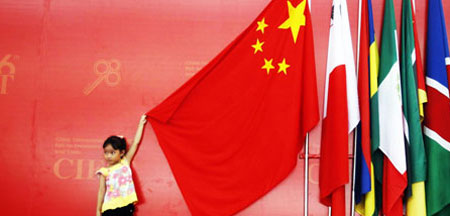Chinese businessmen's bleak times in Greece
Updated: 2012-06-16 10:31Wu Hailong is one of many Athens-based Chinese businessmen losing confidence in Greece.
"We are waiting, waiting and waiting for a change for the better in this country," said the 47-year-old. "But we are challenged by the political impasse, the worsening business climate and social disorder."
 |
"I cannot see any light at the end of tunnel right now," said Wu, the owner of a company that trades in Chinese commodities and publisher of the Chinese-language Euro Weekly newspaper.
"But all business is very bad and difficult," said Wu, from Qingtian, a city in Zhejiang province that is famous for its long tradition of local people moving abroad to start businesses.
In 2009, he handled more than 100 containers of goods imported from China, while the number fell to 40 in 2010, and 20 last year.
"And in the first half of this year, I imported just seven containers of clothes and other commodities," said Wu.
In the eight-floor Chinatown building which he rents and operates, he uses the third floor, which covers 700 square meters, as wholesale store. But it is very difficult for his staff to make business deals.
Around his Chinatown building, about 200 Chinese shops have opened next to each other, but now shoppers are few and the shopkeepers and their employees have glum expressions.
According to Wu, who started his business in Athens in 2001 after leaving his hometown, there are several reasons for the bleak business outlook.
He said that the austerity policies in Greece since 2010 have weakened the spending ability of the medium- and low-income Greek families, and most of them have frozen their spending on clothing and shoes.
At the same time, the Greek government has increased the business tax.
In China, export prices have increased due to inflation and higher labor costs. "With all these factors, you can see how hard our business is," said Wu.
"The fluctuation of the euro is also difficulty for us," he added.
- BYD exports three electric cars to Thailand
- Grid gets first jolt of residential solar power
- US now largest buyer of China's exports
- China's outbound M&As on the rise
- Tobacco control may entail price, tax rises
- Quanzhou becomes pilot financial reform zone
- New automobiles shine at Geneva Motor Show
- World's longest high-speed rail 'on track'
- Jiugui Liquor involved in plasticizer scandal again
- Accident reignites school bus safety concerns
- China to revise labor law
- Trademark registration under scrutiny
- Dinner ban takes toll on liquor firms
- CIC tables bid for London's Chiswick Park
- Property buyers eye overseas market
- Call for law to protect personal information
- China to cut train ticket prices
- Christmas business
- Solar industry to get jolt from new policies
- KFC chicken under spotlight




